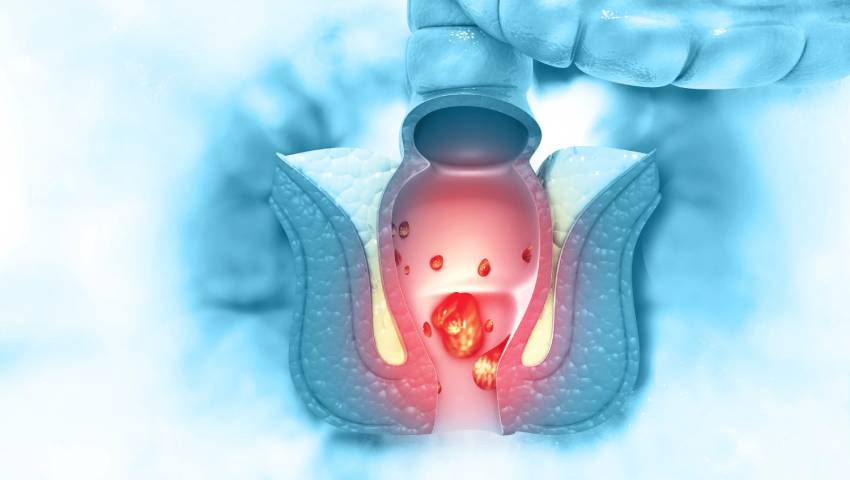
- 29/02/2024
- Dr. Srivatsan Gurumurthy
- 0 Comments
- Blog
All you Know about Anal Cancer
Anal cancer, while not always openly talked about, is an important health issue that deserves attention. In this blog, we are then to explore the essential rudiments of anal cancer, uncovering details about what puts you at threat, signs to watch out for, how it’s diagnosed, and the available treatment choices. Dr Srivatsan Gurumurthy, a Robotic Surgeon in Chennai And expert in this field, shares precious perceptivity to help you understand and address this frequently- overlooked health concern.
What is Anal Cancer?
Anal cancer is a type of cancer that develops in the apkins of the anus, which is the occasion at the end of the rectum. The anus is a portion of the digestive system and is responsible for the elimination of logical waste from the body. Anal cancer is relatively delicate and assimilated to other manners of cancer, but its frequency has been adding.
Symptoms of Anal Cancer:
Anal cancer is a delicate shape of cancer that starts in the anus apkins. It’s important to note that Dr. Srivatsan Gurumurthy.
- Rectal Bleeding: One of the most common symptoms is bleeding from the rectum or bolod in the coprolite. This bleeding may appear as bright red or may make the coprolite appear dark and sojourn.
- Anal Pain or Discomfort: Persistent pain or discomfort in the anal region that does not improve with time or usual treatments may be a symptom of anal cancer.
- Changes in Bowel Habits: Changes in bowel fashions, similar to patient diarrhea or constipation, may be reflective of a case in the anal or rectal area.
- Anal Itching: Persistent itching around the anus that doesn’t respond to over-the-counter treatments may be a symptom of anal cancer.
Causes of Anal Cancer:
Dr Srivatsan Gurumurthy can provide information about potential causes of anal cancer based on medical knowledge.
- Human Papillomavirus (HPV) Infection: Steady contamination with specific kinds of HPV, especially HPV 16 and 18, is a critical gamble factor for butt-centric malignant growth. HPV is a physically communicated virus.
- Weakened Immune System: Independences with devitalized capable textures, undifferentiated from those living with HIV/Helps or individuals who have traversed release transplantation, are at a procured trouble of making butt-driven grumblings.
- Anal Intraepithelial Neoplasia (AIN): AIN is a pre-cancerous condition that may progress to anal cancer. It is often associated with persistent HPV infection.
- Anal Fistula or Abscess: Chronic conditions such as receptive region or abscesses, which may result from infections in the submissive area, could potentially increase the risk of anal cancer.
Risk factors of Anal Cancer:
Dr. Srivatsan Gurumurthy has identified several common risk factors for anal cancer, which include:
- Human Papillomavirus (HPV) Infection: Persistent infection with certain strains of HPV, especially HPV type 16 and 18, is a significant risk factor for anal cancer. HPV is a sexually transmitted infection.
- Sexual Activity: Engaging in receptive anal intercourse increases the risk of anal cancer. This is often linked to the transmission of HPV.
- HIV Infection: People with a weakened safe structure, similar to those living with HIV/Helps, are at an extended bet of making butt-driven infection. HIV-positive individuals could have a higher inescapability of consistent HPV sickness.
- Smoking: Tobacco use has been identified as a risk factor for anal cancer. Smoking can weaken the immune system and may contribute to the development of cancerous cells.
- Age and Gender: Anal cancer is more common in older adults. Additionally, it occurs more frequently in women than in men.
It’s important to note that having one or more risk factors doesn’t guarantee the development of anal cancer, and individuals without these risk factors can still be diagnosed with the condition.
Diagnosis of Anal Cancer:
- Rectal hemorrhage is a common symptom of anal cancer. People who experience anus bleeding, itching, or pain must immediately seek medical attention before anal cancer goes beyond stage one. Anal cancer can be diagnosed during routine checks or treatments.
- Anal cancer can even be diagnosed through digital rectal exams. These are typically performed as part of a prostate exam. Manual rectal exams, in which the doctor inserts a finger into the anus to feel any growths or lumps, are prevalent in both gender pelvic exams.
- Another way to diagnose anal cancer can be by using Anal Pap Smears. This is a similar process to a traditional Pap Smear. However, in this case, the doctor will use a cotton swab to gather cells from the anal lining which will later be sent for further examination.
- A biopsy can also be done to diagnose anal cancer.
Treatment Of Anal Cancer:
The primary treatment modalities include:
- Surgery: Removal of small tumors that have not spread deeply into the tissues. One of the most common surgeries for anal cancer is local resection surgery. It is done to remove the anus tumor as well as certain healthy tissue around it. This process is done only if anal cancer has not spread to other organs of the body. It is an ideal procedure for those who are diagnosed with anal cancer at an early stage, and for those who have tiny tumours. Another surgery that can be conducted for anal cancer includes Abdominoperineal (AP) Resection. This is known to be a more invasive anal cancer surgery. This procedure is for those people who did not react well to other treatments or those who are at an advanced stage.
- Radiation Therapy: External Beam Radiation is directed at the tumor from outside the body to kill cancer cells.
- Chemotherapy: Medications are regulated orally or intravenously to kill or hinder the development of disease cells. Frequently utilized in blend with radiation treatment.
- Targeted Therapy: Prescriptions that target explicit atoms engaged with disease development, frequently utilized related to chemotherapy.
How can Dr. Srivatsan Gurumurthy help?
Dr. Srivatsan Gurumurthy provides a comprehensive range of services for treating GI Cancers at GEM Hospital, Chennai. If you notice any symptoms of anal cancer or are diagnosed with anal cancer then consult with Robotic and Laparoscopic Surgeon in Chennai Dr. Srivatsan Gurumurthy at GEM Hospital, Chennai.
